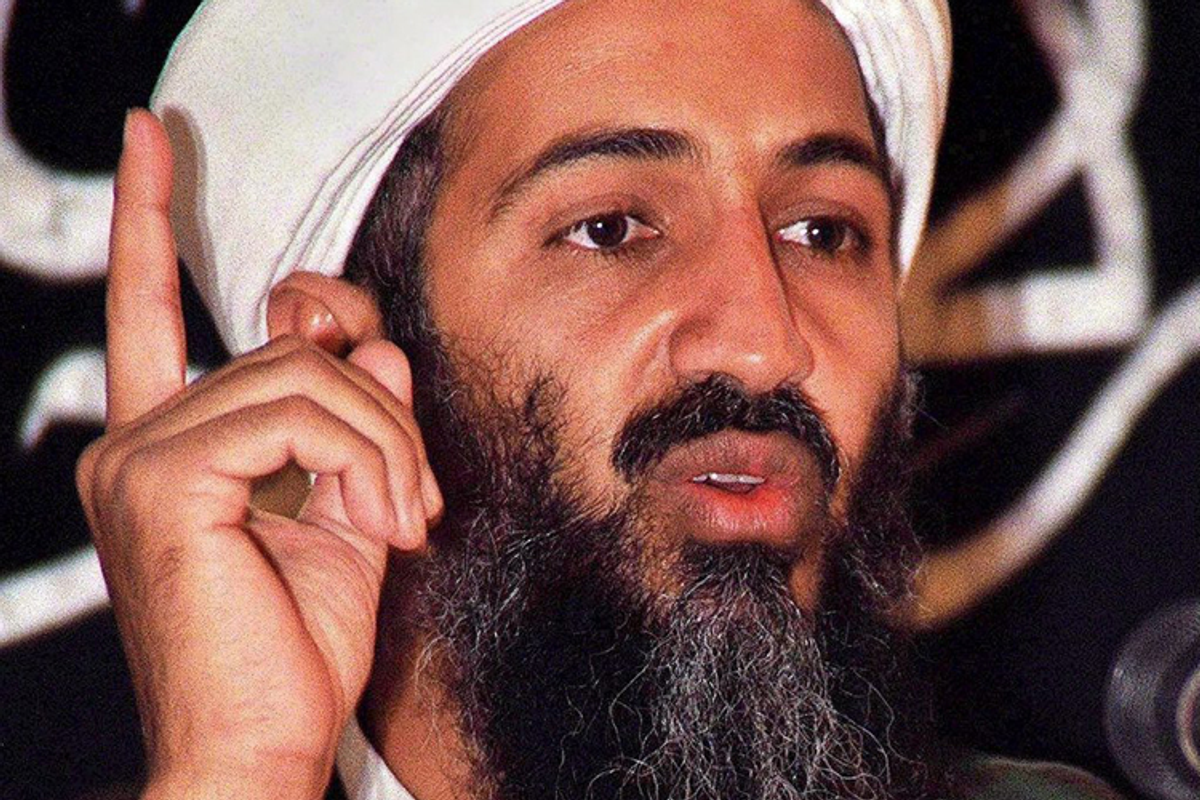Almost everything we learn about Al-Qaida and Osama bin Laden these days is coming from anonymous U.S. officials.
 Wednesday, for instance, U.S. officials told us via The Washington Post that Al-Qaida was on the verge of being totally wiped out. The comments echoed earlier ones from Defense Secretary Leon Panetta, the former C.I.A. director, who earlier said that only a couple dozen more Al-Qaida militants needed to be killed before the war was over.
Wednesday, for instance, U.S. officials told us via The Washington Post that Al-Qaida was on the verge of being totally wiped out. The comments echoed earlier ones from Defense Secretary Leon Panetta, the former C.I.A. director, who earlier said that only a couple dozen more Al-Qaida militants needed to be killed before the war was over.
Last week the officials were talking to the Wall Street Journal. They told the paper that Al-Qaida would likely be shifting the focus of its attacks to Western targets outside of the United States. They said this was because it had become too difficult for them to strike inside the United States.
The Wall Street Journal said the U.S. officials had come to this conclusion based on evidence gleaned from flash drives found in the compound where bin Laden was killed. Much of the information we are learning about bin Laden and Al-Qaida, in fact, is said (by U.S. officials) to be coming from those flash disks, as well as a computer.
It was from the computer, for instance, that U.S. officials learned that bin Laden liked porn. Everyone ran with that story. It was great story. Not only was it sure to drive traffic, combining two of the most searched items on the internet these days (porn and bin Laden), but it also tweaks the legacy of a man who claimed that a strict adherence to Islam is what guided him in his global campaign of terror.
It is reminiscent of the news, also released by U.S. officials, immediately following the raid that led to bin Laden's death that, in a vain attempt to protect himself, bin Laden used his wife as a human shield. Not so heroic. That detail turned out to be false. As was news that bin Laden was armed.
The news that bin Laden liked porn also came from U.S. officials. They leaked it anonymously to Reuters and then everyone else reported the Reuters report (including GlobalPost). In fact, all the details about the raid, what transpired and what was found after, has come from U.S. officials.
The New York Times reported on May 6 that the details surrounding the raid and the discoveries that followed have been fluid in their accuracy. It partly blamed a ravenous media, itself included. But it also blamed a desire by the United States to spin facts in order to diminish bin Laden's legacy.
Was the revelation that bin Laden liked porn part of that spin? What about everything else we are learning from U.S. officials? Is that spin too?
If it's not spin, all the reports surely play into the hands of the U.S. government. Not only did the Wall Street Journal story infer that our defense measures are working but it justified our continued pursuit of Al-Qaida militants all over the world, both through the war in Afghanistan and the ramping up of drone attacks in Yemen and Somalia.
The Washington Post story, meanwhile, suggests that we have been successful in Pakistan, where drone strikes have been plentiful, but Al-Qaida remained strong in Yemen, where the U.S. plans to increase its use of unmanned drones.
Other things we learned recently about bin Laden: He was planning an attack on the 10-year anniversary of Sept. 11, he had a "direct" role in the planning of the July 7 bombings in London, a belief that runs counter to previous reports, and he was actively planning any number of other attacks as well -- all according to "U.S. officials."
If you say so.



Shares